Jersey Wooly Rabbits are one of the smallest domestic rabbit breeds known for their bold head and easy-care wool fur on their body. Their docile nature and gentle disposition make them one of the most popular rabbits around the world.
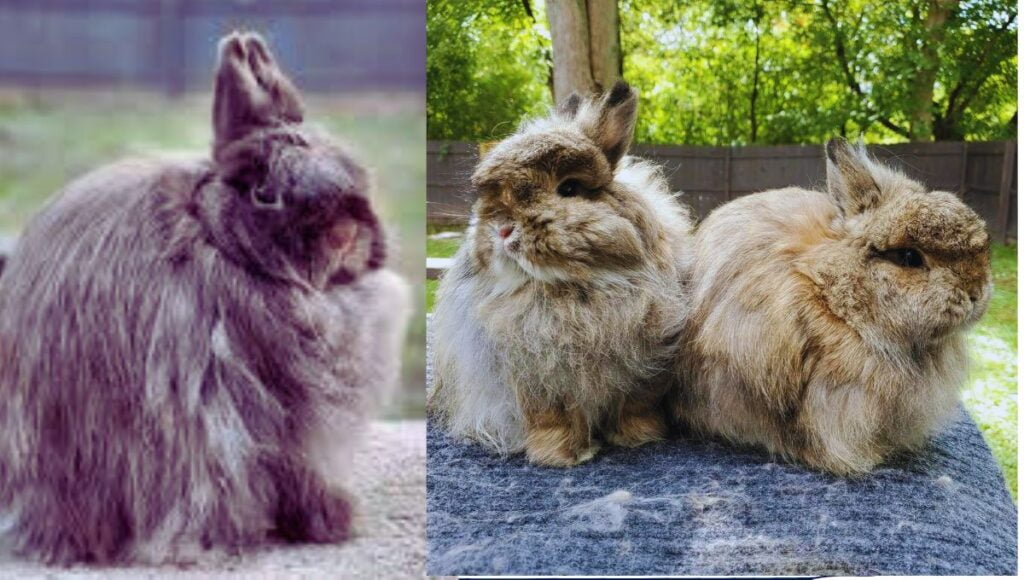
Table of Contents
Jersey Wooly Rabbit- In a Glimpse:
| Common Name | Jersey Wooly Rabbit |
| Scientific Name | Oryctolagus cuniculus |
| Other Names | No-Kick/ Mug-Head Rabbit |
| Adult Weight | 2.5-3.5 lbs |
| Black, grey, brown, and white. | Behaviour |
| Habitat | Cage, hutches, meadows |
| Diet | Grass, Hays, Oats, Spinach, etc |
| Predators | Dogs, cats, foxes, badgers, etc |
| IUCN Status | Not evaluated |
| Gestation Period | 28-31 days |
| Weaning Age | 1.5-2 months |
| Lifespan | 7-10 Years |
| Behavior | Docile, gentle, playful, and intelligent |
| Good Pets? | Yes |
| Jump | 36 inches |
| Speed | 35-45 mph |
| Grooming | Once a Week |
Everything About Jersey Wooly Rabbits:
Origin:
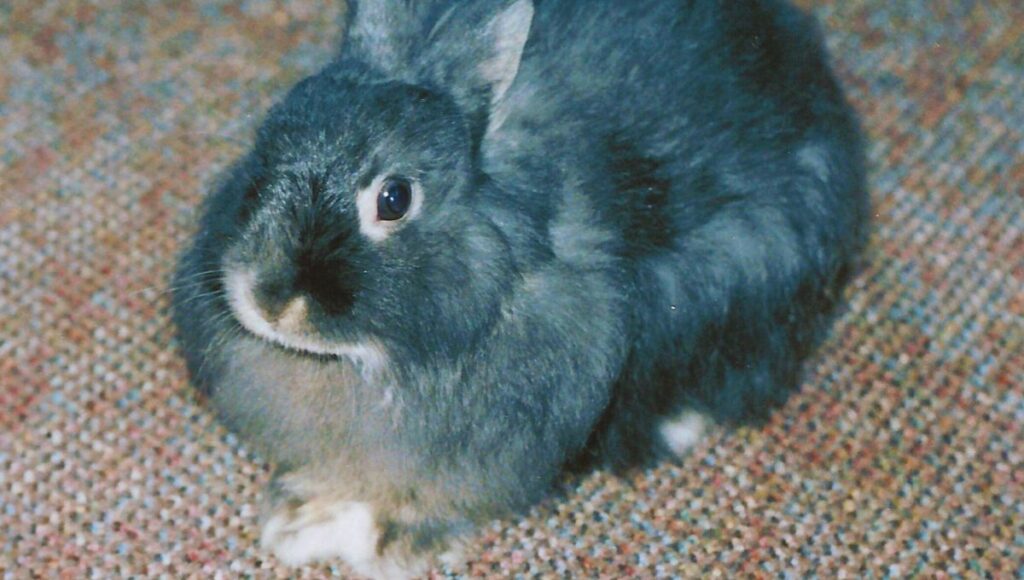
Bonnie Seeley of High Bridge, New Jersey, first introduced the small rabbit breed at the American Rabbit Breeders Association (ARBA) Convention in Orlando, Florida in 1984 and in 1988 ARBA recognized the rabbit breed. As of 2024, Jersey Wooly is one of the most popular rabbit breeds for rabbit shows in the United States.
The Jersey Wooly Rabbits are the result of crossing between the Netherland Dwarf and the French Angora. The resultant of the cross was a petite rabbit with a woolly coat. Earlier Jersey Woolies were oblong shaped due to the influence of the French Angora but later the breeders made it smaller by influencing the dwarf genes.
Habitat:
Jersey Woolies are mainly considered domestic pets and hence they mostly live in cages or hutchs. Whenever they find the opportunity, often escape the cage/hutch and play in the garden, park, or meadows. However, the rabbits need playing and exercise time outdoors to burn their energy but due to their delicious meat and small size, predators can harm them. Hence, monitor your little rabbit closely whenever the rabbits are playing outside the house.
Cage Size:
The bigger the cage, the better for the rabbits but if you lack space at your house, you should have a cage that is at least 3-4 times of the rabbit so it can move, play with toys, and stand up using the hind legs. It is recommended to have a cage that is at least 1.5-2 times the rabbit’s width and 3-4 times the rabbit’s length. The ideal cage for the rabbit should be 18 in * 24 in a cage with sufficient height. Ensure the floor is not rough and the bedding for the rabbit is soft. Otherwise, it can irritate the rabbit’s paw.
Physical Characteristics: How do you identify a Jersey Wooly Rabbit?
Jersey Woolies are petite and have a compact body type with small and erect ears 2.5 in long. The heads of Jersey Woolies are bold and squarish and hence they are popularly known as mug head rabbits. A full-grown Jersey Wooly weighs around 1-1.5 kg or 2.5-3.5 lbs. The rabbit breed is considered among the dwarf rabbits.
Which type of Jersey Wooly is ideal for an exhibition?
According to ARBA, the ideal weight for the rabbit is 3 lbs, and the maximum ear size that is allowed is 3 in. Remember, while showing a Jersey Wooly in an exhibition the head and ear of the rabbit carry the maximum points.
Colours and Fur:
The colour of the rabbits is solid or broken patterns in a wide range of colours such as black, grey, brown, and white. The rabbit’s coat is laid-back, soft, and has long woolly furs.
Diets:
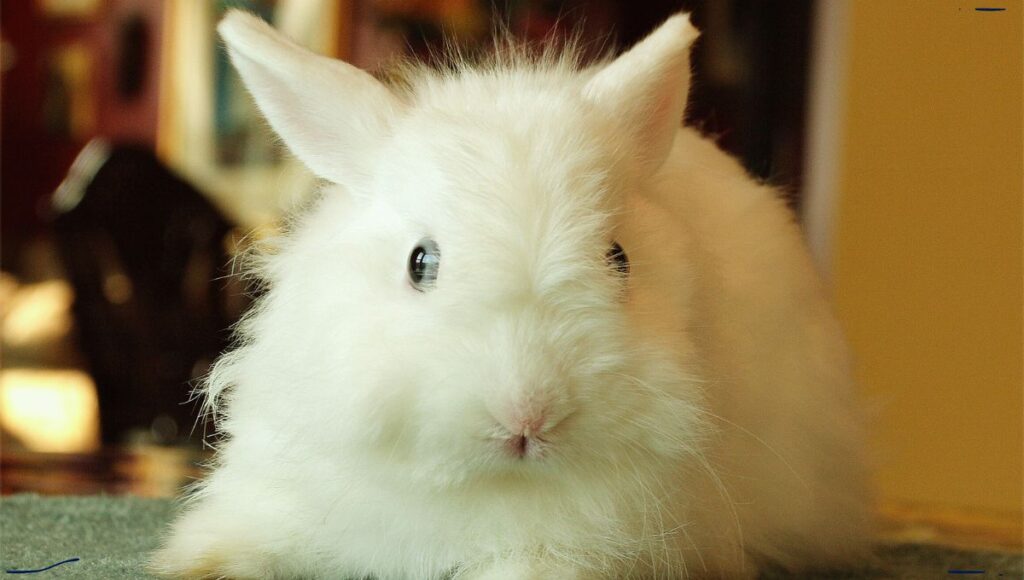
Jersey Woolies are herbivorous and 70% of their diet consists of hay. Good quality hay (eg. Timothee hay) not only gives them proper nutrition but also prevents their teeth from overgrowing. The rest 30% of their diet consists of grass, and green vegetables such as spinach, lettuce, Bok choy, mustard greens, carrot tops, cilantro, and broccoli. The green vegetables provide the micronutrients to the rabbits which hay cannot provide.
You can also provide the rabbits with commercialized packaged food on the recommendation of a specialist. However, the quantity of food that a Jersey Wooly requires completely depends on age, sex, health condition, and activity level. Usually, a full-grown and healthy Jersey Wooly needs 1/4th cup of pellets every day. Rabbits don’t have strong digestive systems and hence dairy and meat products are strictly banned from their diets.
Predators and Threats:
Usually, Jersey Wooly Rabbits don’t have any natural predators but due to their small size, many large animals can harm them. Dogs, cats, wolves, badgers, coyotes, foxes, and other larger birds are their potential predators. They might harm the Jersey Wooly rabbit for its delicious meat while the rabbit is playing outside the house. Hence, it is very important to monitor your rabbit while it is playing outside the house.
Disease and Health Issues:
Jersey Wooly Rabbits often face health issues such as:
- Flystrike: When a fly lands on a rabbit’s skin and lays their eggs on the injured or dirty part of the rabbit’s skin and the eggs hatch quickly and sip in the skin. It can cause the death of the rabbit within hours.
- Spaying or Neutering: Jersey Wooly Rabbits need to be spayed or neutered within 6 months of age to avoid the chance of developing some life-threatening reproductive system tumours and cancers.
- Overgrown Teeth: Rabbit’s teeth never stop growing and they can grow into their jaws and face which can be very painful. Good quality hay can prevent rabbit’s teeth from overgrowing.
- Wool Block: It happens when the rabbit swallows its fur and the fur sticks in their stomach and forms a block. This could lead to loss of appetite and eventual starvation.
- Bladder Problems: Rabbits get rid of calcium through their bladder and it often causes “bladder sludge”. The sludge finally leads to very painful bladder stones. The problem can be solved by veterinary surgeons and antibiotics.
- Respiratory Tract Problems: As Jersey Woolies have small mouths, and their sinuses are very close to their upper teeth, they often find it difficult to breathe and suffer from sinus infections.
Treatment:
It is advised to bring your rabbit for routine check-ups at least twice a year to the doctor. After five years of age, the rabbits become more prone to health issues, and hence you should bring them to the doctor whenever you notice any symptoms.
Lifespan:
Jersey Wooly Rabbits have a lifespan of 7-10 years but with proper maintenance and care sometimes they live up to 12 years. However, due to health issues, disease, and injuries sometimes they experience early death. Hence, with proper medical care and treatment, they can live up to 10 years on average.
IUCN Status:
Due to the unavailability of proper data, the IUCN status of the Jersey Wooly Rabbit has not been evaluated yet.
Behaviour: Are Jersey Woolies Good Pets?
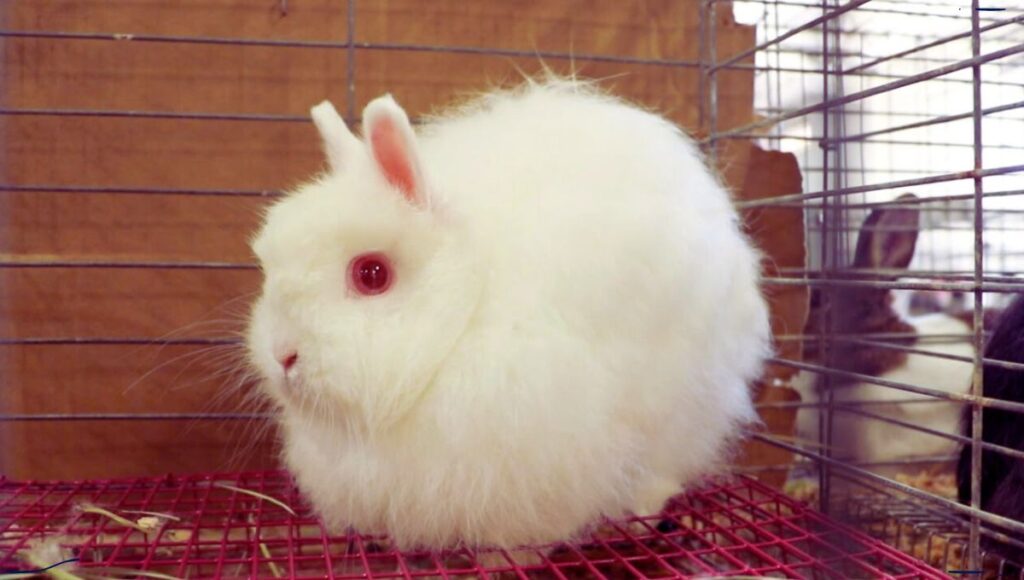
Jersey Wooly Rabbit is very docile and known for their good bonding with other family members. They are known for winning prizes at various rabbit shows for their astonishing looks and appearances. These rabbits are affectionate, playful, curious explorers, and also laidback lap rabbits.
Training:
Jersey Wooly Rabbits are very intelligent and easy to train. You can train them so they can respond when someone calls by their name and calls for food.
Crate:
The rabbits need a small size cage/hutch to live in. You’ll have to lock the cage/hutch in the early days to show the rabbit that it is its home where the rabbit can rest, sleep, and spend its day.
Potty Training:
If you start potty training at an early age, it will be easy for the rabbit to potty train. Every time bring the rabbit its droppings back to the cage or hutch and puts the dropping in the litter box, the rabbit will recognize the place to go by odour and habit.
Walking Training:
You can also give your Jersey Wooly Rabbit walking training with a leash so it can walk along with you.
Exercise and Sleep:
The small-sized rabbit needs a lot of exercise and playing time to maintain its activity level and burn its energy. As an owner, you need to give at least 2-3 hours of playing time at the garden/park every day to keep the rabbit healthy. Monitor the rabbit closely while it is playing outdoors as due to its small size many potential predators can harm it. Along with exercise and playing, the Jersey Wooly also needs 8-10 hours of sound sleep on a soft bed to stay healthy.
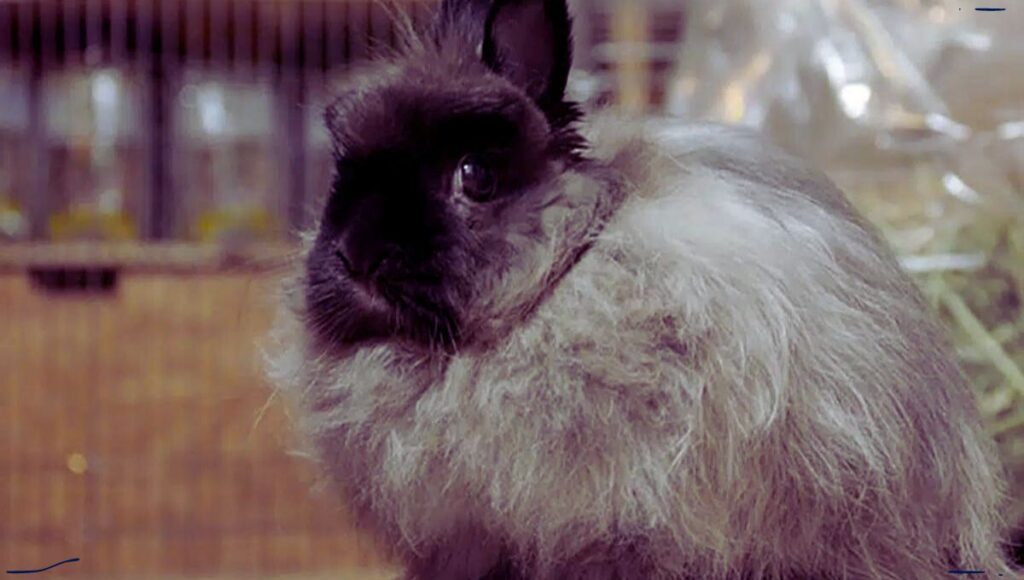
Grooming:
Despite having long fur, Jersey Wooly Rabbit doesn’t need much grooming. Grooming once a week is enough for the rabbit and in the shedding season twice a week will be enough.
Bathing can be a very bad experience for the rabbit and hence it is advised not to bathe the rabbit as they self-clean themselves. Rabbit’s ears control the body temperature and hence it is very important to keep their ears dirt-free. Also, trim their toenails whenever necessary.
Compatibility with Families:
Jersey Woolies are very friendly and docile once they start to trust you. Due to their high intelligence, the rabbits can easily incorporate into any family irrespective of sex, experience, gender, and financial condition. Even a beginner can also pet a Jersey Wooly without having many problems.
As an owner, you should respect the personal space of the rabbit especially when it is new at your home. The rabbits need little time to create a bond with the family members but till then you should give the rabbit enough space so it doesn’t feel afraid. At a young age, you should socialize with the rabbit otherwise they might be afraid of human company.
Compatibility with Other Pets:
Jersey Woolies are comfortable with other pets too if the pets don’t want to harm the rabbit.
About Jersey Wooly Rabbit’s Sales:
What is the Price of a Jersey Wooly Rabbit?
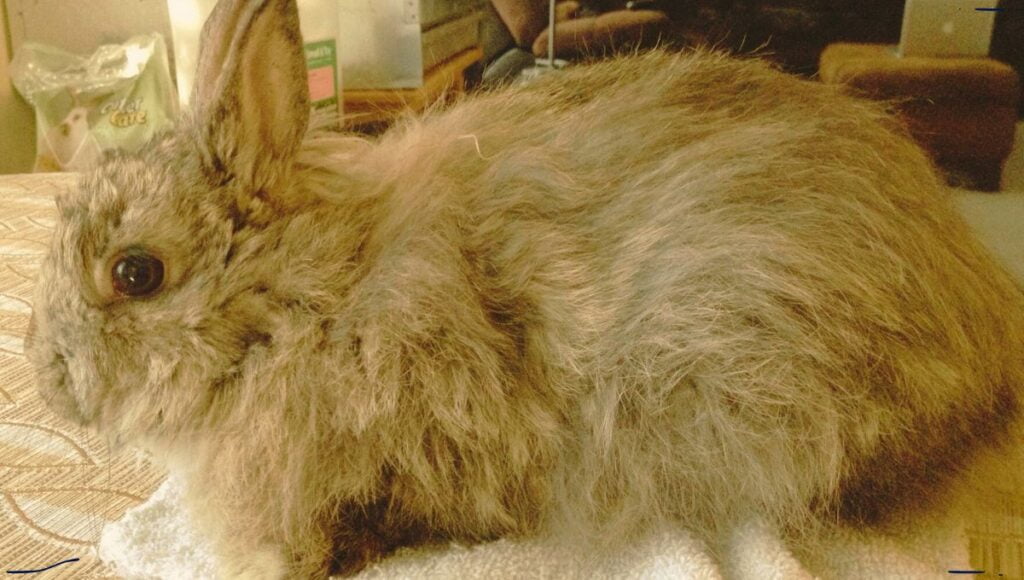
Jersey Woolies are one of the most popular rabbit breeds in the USA. You can purchase it online depending on your location as well as your nearby pet shop and from local rabbit breeders. A good quality Jersey Wooly rabbit will cost between $50 and $125 in the USA. But a show quality rabbit may cost around $200 due to their high maintenance charge. Before buying a Jersey Wooly from a rabbit breeder, don’t forget to inquire about its parents as genetics play a big role in their health.
Along with the rabbit, you’ll also require soft bedding, food plates, litter box, leash, cage and hutches, and rabbit toys, which will cost around another $200-$500 in the beginning. You’ll also need insurance for the rabbit which will cost $15-$25 a month in the USA and £10-£30 monthly in the UK and other countries of Europe.
5 Facts to Remember Before Buying a Jersey Wooly:
- Jersey Woolies are very curious by character and they chew almost everything that is on the floor. Hence, make your home rabbit-proof and ensure no electric wires, clothes, or important documents are fallen on the ground.
- Rabbits have very weak digestive systems and hence it is strictly prohibited to give them dairy or meat products to consume.
- Jersey Woolies requires 3-4 hours of exercise every day at the garden or park to stay healthy. As an owner, you must monitor your rabbit closely whenever it plays outdoors to protect it from predators.
- Jersey Woolies requires a lot of attention and care from the owner and the other members. If you don’t give it enough attention or care, it might cause trouble. Hence, ensure you have enough time for your rabbit before buying it.
- Always make sure the cage or hutch is big enough so that the rabbit can move freely. Also, ensure the floor and bed are soft enough or it might cause irritation to the rabbit’s paw.
Also Read:
Florida White Rabbit: Everything You Must Know Before Purchasing
Lionhead Rabbits: Everything You Must Know Before Buying
English Spot Rabbit: Everything You Should Know Before Purchasing
Tan Rabbits Pet Guide: Top 7 Facts to Know Before Buying
Are Mini Lop Rabbits Good Pets? 7 Important Facts to Know Before Buying
Are Polish Rabbits Good Pets? 13 Interesting Facts to Know Before Purchasing
Are Satin Rabbits Good Pets? 17 Facts to Remember Before Purchasing a Satin
Are Rex Rabbits Good Pets? 13 Facts You Should Know Before Purchasing a Rex